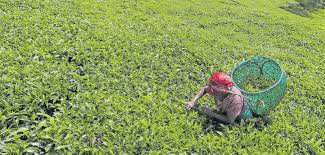
Fairtrade Africa has
launched a campaign to enhance gender quality in the agriculture sector by
encouraging consumers to purchase
goods produced by organisations that
have put in place measures to safeguard their workers, especially women,
partners while protecting their environment.
Dubbed ‘Be Fair Right Now’ the campaign encourages individuals to rethink their purchasing choices by connecting their actions and larger social impacts, specifically regarding gender fairness and environmental responsibility.
According to the lobby, women make up 20 per cent of Fairtrade farmers and 45 per cent of workers, yet they continue to face systemic barriers and inequalities within the agricultural sector.
In Kenya, women represent 80 per cent of the agricultural labour force, often juggling domestic responsibilities with their work, which is frequently unpaid and unrecognised.
“Our ‘Be Fair Right Now’ campaign highlights the urgent need for inclusion and equity, as well as the shared responsibility of all stakeholders—from producers to consumers—in fostering an agricultural sector built on dignity, safety, and respect for human rights,” said Agapeters Kubasu, head of region for East and Central Africa at Fairtrade Africa.
Kubasu noted that women contribute between 60 per cent and 80 per cent of the world’s food, yet their critical role in agriculture is often overlooked.
They face systemic challenges, including limited access to land, financial resources, and leadership opportunities.
In Kenya, women workers are disproportionately affected by low pay, casual work conditions, and discriminatory practices, underscoring the urgent need for greater equality in global agriculture.
Kenya’s agricultural sector is a crucial part of the economy, providing 65 per cent of export earnings and employing 40 per cent of the total population and 70 per cent of the rural workforce.
Despite their essential contributions, women—who make up 80 per cent of the labour force in Kenya’s agriculture—are often confined to low-paying, casual jobs and face unequal treatment.
This highlights the importance of consumer choices in creating demand for fairer practices in the sector.
Tackling Inequalities in the agricultural workforce, ethical certifications and producer organisations (POs) play a crucial role in addressing these issues.
Fairtrade-certified POs, for example, promote better pay and improved working conditions for workers, while also upholding principles of gender equality and fairness in recruitment and promotions.
Union representatives have also observed higher wages within certified organisations, highlighting the positive impact of consumer demand for ethical products.
Through Be Fair Right Now, Fairtrade Africa is calling upon consumers to take proactive steps toward ethical consumption.
By encouraging individuals to rethink their purchasing choices, Fairtrade aims to foster a stronger connection between everyday actions and larger social impacts, specifically regarding gender fairness and environmental responsibility.
“While awareness around ethical shopping grows, initiatives like this aim to transform knowledge into practical action , with consumers becoming advocates for change in their daily purchases,” it said.
‘Be Fair Right Now’ includes an interactive online quiz that challenges
participants to assess the fairness of
their current buying habits and explore
simple ways to integrate more Fairtrade
Africa certified products into their lives.










